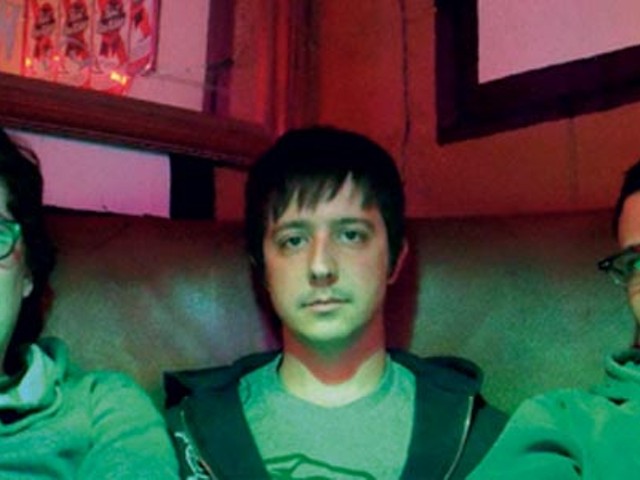A particular set of problems can emerge when you are a city whose national stock is based on a two-week span of debauchery and high-impact horseracing that begins in earnest with a prodigious display of controlled explosions, sketching the night sky in rainbows of bombastic primaries and pastels.
Virtually since its inception, the local yokel complaint about Thunder Over Louisville has been that it jams up downtown and nearby streets, belching sulfuric smoke across the skyline and creating an Oscar-worthy cultural logjam.
Once America went to war against Iraq, peaceniks here offered the rather logical argument that a thing like war — with all its death and suffering, and spending of taxpayer money — shouldn’t be celebrated, consciously or otherwise, by flying military planes over the city and promoting the simulated carnage of a sustained, 30-plus-minute detonation. Of course, the other side argued that wartime is precisely when a country should celebrate its military, with bursts of red-white-and-blue and “God Bless America” played ad infinitum. The Kentucky Derby Festival, chief promoter of Thunder and its attendant activities, stayed mum, and this year is offering the group Pathways to Peace a booth while continuing to serve up kaboom after kaboom — anyone working downtown will know the roar of AH-64 Apache helicopters buzzing the command center at the Galt House at 1 p.m. Friday, so remember to take lunch a little early.
But the most basic problem concomitant with Thunder — which attracts almost a million people — is constitutional.
Each year, the Kentucky Derby Festival — in accord with Metro government, police and the state Department of Transportation — closes the Clark Memorial Bridge for a long weekend. This year the Clark, the only non-interstate bridge open to the public between Louisville and Southern Indiana, is closed from Thursday morning until Sunday afternoon.
There’s a good reason: Generally speaking, you don’t want people driving, walking or cycling across a bridge loaded with explosives. And the logistics of the country’s biggest fireworks display don’t really allow for much flexibility. The thousands of Hoosiers who have to get to Louisville for work that Thursday and Friday may as well take the days off; I might as well, too, so I don’t have to hear everyone complaining.
The Constitution provides among its most base provisions the ability for U.S. citizens to travel freely between states. (Although our right to interstate travel is not explicitly mentioned in the Constitution, it is an “elementary” right that “has long been recognized,” wrote Supreme Court Justice William J. Brennan in a 1969 opinion.) The Constitution also protects interstate commerce from any practical barriers that may arise. Both of these principles, considered fundamental to our nation, have long withstood court challenges.
And so we of Kentuckiana proper are left with this vexing question, year after year: If the Clark Memorial Bridge is closed, how does someone not in an automobile get across the Ohio River (without a boat or some water wings)? How might a bike messenger deliver goods to our northern neighbors, or vice versa?
A group of cycling and pedestrian advocates finally asked these questions of the right people. For the first time in the 19-year history of Thunder, non-auto commuters — cyclists and pedestrians — will have a way to cross the water without risking arrest or an errant fireball to the face (not to say the Zambelli Fireworks folks aren’t safe, but there’s a lot of firepower up there).
Since winter, members of Bicycling for Louisville and Safe Streets Louisville have been meeting with KDF and local officials, asking for some way to accommodate those suicidal nutjobs who don’t drive cars everywhere, always. This year, from Thursday at 9:30 a.m. until Saturday at 11 a.m., pedestrians and cyclists can cruise up to the bridge and be shuttled across, at no cost, (hopefully) free of hassle. (The bridge will be closed fully from Saturday morning until the smoke clears, at 2:30 a.m. Sunday, at which point, you know, travel at your own risk.)
It marks an important concession from one of the city’s economic juggernauts, and perhaps it is also a smoke signal of a broader cultural shift toward recognizing that not everyone moving themselves in and around this region has the option of a car.
As Earth Day rolls up April 22, you might still be able to smell the sulfur if you’re downtown and the wind hits you just so. As long as you’re not in a car.





